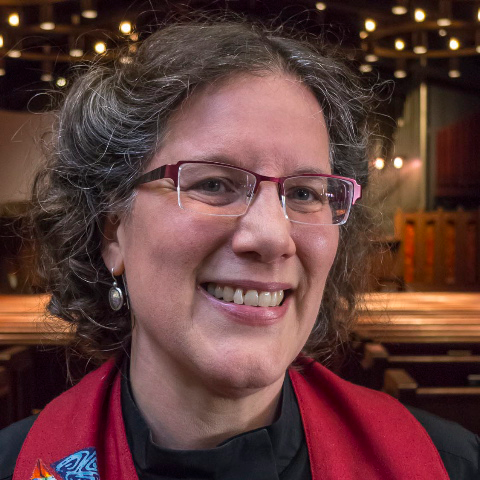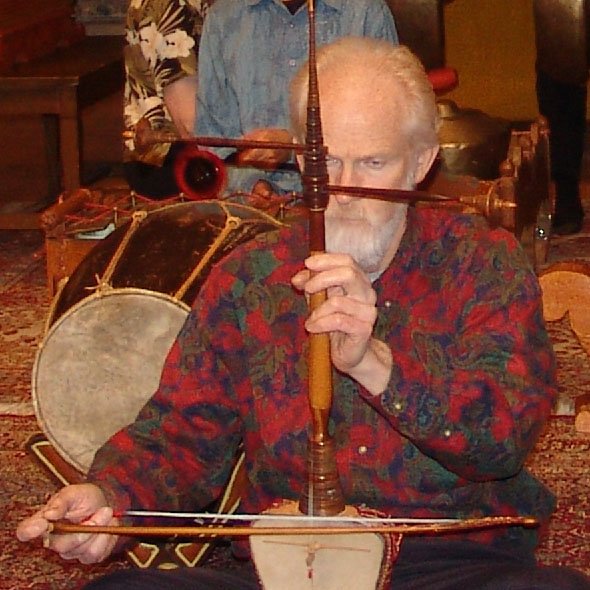{podcast_episode 214}
Bill O’Reilly
FOX News
400 Capitol St NW #550
Washington, DC 20001
Dear Mr. O’Reilly,
You got my attention this year – as you have in the past – when you and other FOX news personalities announced that war had been declared on Christmas. Being a pastor of a church, as well as a pretty big fan of Christmas – I wanted to share some of my thoughts.
I understand the pain that comes whenever we discover something pure, hopeful and holy is being threatened by a callous and unthinking force … When good and faithful people are being oppressed by some callous blind pursuit of power and domination.
It is important at such times to honor our instincts to hold on to what is holy. Indeed, many stories from the Bible lift this up as an obligation.
I’m thinking of one which describes the plight of the people in Jerusalem just after it was conquered by Alexander the Great. The Jews living there became civilians of an occupied territory, ruled by a foreign king. Jerusalem was a distant outpost, not particularly important to their rulers and the Jews found that they could live – and worship – as they pleased – as long as they paid their taxes.
But then came Hellenization – the powerful influence of Greek culture – food, religion, language, philosophy, politics – which swept through Jewish community. Before long, Judaism began to change. And Jewish authorities worried about the purity and the future of their way of life.
Into this time came a new ruler by the name of Antiochus IV. Antiochus did not understand or respect Jewish autonomy and insisted they practice Hellenistic customs like everyone else in the kingdom. He took control of the main Jewish temple, smashed all their religious symbols and sacred oils and converted the whole thing to Greek pagan worship.
Heartbroken Jews were counseled to resist the onslaught of Greek culture, but it was too alluring and seductive to ignore. Many wavered. And Jewish authorities lived with the anxiety of extinction – knowing that if people failed to carry on the customs, the faith would die and their people would be assimilated.
It was in this context of anxiety that a rebel Jewish leader, Mattathias Maccabee, killed an apostate Jew for taking part in a pagan sacrifice in the temple. Then, he killed the attending royal officer. Things escalated. A bloody battle and years of guerilla warfare followed.
Three long years later, Mattathias’ son, Judas Maccabee, led a sneak attack that overtook the temple whereby a band of Jews rededicated it by recovering a single vial of sacred oil – which was only enough for one day – but it lasted for eight – until more oil could be consecrated.
Mr. O’Reilly, this is the miracle of Hanukkah – the story for which Jews remember the holiday each year. It is a story, like the one you describe: of faith under fire by self-serving and oppressive forces.
<><><>
I also have a personal story of living under the seductive influence of an invading culture. I was born in the early 60s, just as television was assuming its place of prominence in American life. With TV, came the power of advertising. And it seemed no aspect of life became more of a target for advertisers than the celebration of Christmas – especially in regards to the ritual of gift-giving.
I was five years old when it first occurred to me that Christmas gift-giving was not a one-way gesture, but an act of reciprocity. Ways of exchanging love. This epiphany was made clear by my kindergarten teacher who helped me – and all my classmates – make Christmas presents for our parents.
We made clay handprints… which all seemed fine, until I started watching the TV commercials –none of which promoted clay handprints. They were all touting more elaborate gifts like jewelry, cars or bigger and better TVs. Still I wrapped my gift and placed it under the tree.
Everything was well and good until we started unwrapping presents. And one of the first presents my mom opened was from my older brother, Doug, who was a year older than me. The year before, he had made and given her a clay handprint when he was in Kindergarten. But this year, he upgraded, significantly. I watched as he handed my mom a big, heavy present. My mom unwrapped it and was speechless when she realized my brother had gotten her a whole gallon of perfume. A whole gallon!!! Nothing says ‘love’ like a gallon of perfume! I felt so outdone and embarrassed, I hid my present to my mom which she didn’t find until we cleaned up all the Christmas decorations a week later.
That event, Mr. O’Reilly, made quite an impression on me. For years I carried the threat of being outdone at Christmas. And apparently I wasn’t the only one. Because, I noticed, for years in my family it was predictable that more than one of us would, in our wild desperation to satisfy, wind up getting one of those presents with absolutely no cultural, relational or intrinsic value. Something that only sells during the waning hours of Christmas Eve. Something like a battery operated plaque with a life-sized open mouthed bass singing, “We wish you a merry Christmas.”
More than once I vowed to resist this urge, remembering how it always left me with the emotional and spiritual equivalent of indigestion. But, every year I would see the commercials of extravagant presents where the husband’s face lights up when he opens the little box from his wife discovering, inside, the keys to a new Lexus which sits with a big red bow in the driveway.
I know part of the problem, Mr. O’Reilly, was that I never got the Lexus. I always got the signing fish. And as much as I hoped it would be different, it never was. And it wasn’t that I was confused about what kind of people I hung out with at the holidays. It was clear we were fish people, through and through. But it made me wish we were something else.
It may be, Mr. O’Reilly that you never wished to be part of something other than what you already were. But there are a lot of people in this world who have known that struggle.
Like comedian Lewis Black who talked about the seductive influence that Christmas had on him. He said:
I have no religion now because I was raised Jewish. And when I was very young, on the first night of Hanukkah, my parents gave me a top to play with. They called it a dreidel. I knew it was a top. I showed my top to my friends next door and they showed me the pony they just got for Christmas. And I looked at the top – and I looked at the pony – and I remember the moment I realized I wasn’t gonna be Jewish for very long.’
What Mr. Black describes was not simply personal. His experience echoes the struggles of all Jewish people to stand against successive waves of cultural temptation – first with Hellenization, and then the seductive influence of Christmas. Do you remember how when the image of Santa really began to sweep into prominence in this country, many Jewish immigrants, and eager to adapt to American culture created Hanukkah Herman? And the Hanukkah bush? And to compete with the giant Christmas tree at Rockefeller Plaza, Jews in Tel Aviv created the world’s largest menorah – more than 60 feet tall weighing 17 metric tons. It was 600 square meters and was lit by a rabbi lifted up by crane.
But it’s important to understand that it was never ‘Christmas’ that Jewish families wanted. It was the spectacle. The lights. The festivity. The unbridled shopping spree that Christmas was becoming.
It wasn’t so much a matter of Jews succumbing to the temptations of Christmas as it was becoming mesmerized by the spectacle of Christmas wrapping itself in corporate commercialism. What seems to have occurred with Christmas in this country over the last two generations is akin to the holy family becoming grafted to a Christmas cash register – like the people in Star Trek encountering the Borg. Until what emerged was a good impulse corrupted by dominant agenda. And a message of hope was reduced into a call for assimilation. “You will shop. Resistance is futile. Fa la la la la, la la la la. Now buy the singing fish!
Christmas is not being threatened by the dominant culture, Mr. O’Reilly. Christmas HAS BECOME the dominant culture. And until you find a way to reclaim the once good and true spirit at the heart of the original message you will continue to spout the doctrine of commercialism which has grafted itself to your soul.
The struggle that you – and Christmas – have succumbed to is one still being resisted by all who endeavor to remain true to the underlying, simple message their faith has to offer.
Rabbi Jeff Salkin, a colleague of mine in Atlanta, offered some great insight about this struggle.
“The Christmas season,” he says, “is an extremely seductive season for Jews. While it is delightful to be able to enjoy the festive nature of this season. Hanukkah reminds us that there are times when we must stand apart from the majority religious culture.”
“The real miracle of Hanukkah,” Rabbi Salkin continues, “is not that a small army of Jewish loyalists were able to defeat the most powerful army in the world. The real miracle of Hanukkah is that Judaism was able to stand up to the tempting culture of its time.”
You seem to have lost that battle, Mr. O’Reilly. And in losing sight of your original faith, you seem set on a course of trying to assimilate others into giving up theirs. I’m not sure what promise convinced you to give up a message of light, hope and love for arrogance, greed and hate. But I take heart in knowing there remain good Christians – and even non-Christians – who have remained true to the Christmas message. Whole towns of them.
This year marks the twenty-first anniversary of evidence to that fact. In Billings, Montana when a brick was thrown through 5-year-old Isaac Schnitzer’s bedroom window, he woke up covered in shards of glass. The reason? A menorah was stenciled on the front window as part of the family’s Hanukkah celebration.
Billings, Montana is considered a “homeland” for the Aryan Nation, Klan members, and other white supremacists. Hundreds of hate crimes occur there every year. Many against Jews – desecration of Jewish cemeteries, threatening phone calls to Jewish citizens, swastikas painted on the homes of Jewish families…
When Isaac’s mother, Tammie Schnitzer asked the police how she could best protect her family from harm, the advice she got was to remove the symbols. She was shocked. ‘How would she explain this to her son?’ she wondered.
When she heard, neighbor Margaret McDonald, was deeply touched by the question. She tried to imagine explaining to her children that they couldn’t have a Christmas tree in the window or a wreath on the door because it wasn’t safe. She remembered what happened when Hitler ordered the king of Denmark to force Danish Jews to wear the Star of David. The order was never carried out because the king himself and many other Danes chose to wear the yellow stars. The Nazis lost the ability to find their “enemies.”
So Ms. McDonald phoned her pastor at the First Congregational United Church of Christ, and asked what he thought of having Sunday school children make paper cut-out menorahs for their own windows. He got on the phone with colleagues and soon menorahs appeared in the windows of hundreds of Christian homes. Asked about the danger of this action, police chief Wayne Inman told callers, “I think there’s actually a greater risk in not doing it.”
Five days after the brick was thrown at the Schnitzer home, the Gazette published a full-page drawing of a menorah, along with a general invitation for people to place it in their windows. By the end of the week nearly ten thousand homes had them displayed
A sporting goods store got involved, advertising on a large billboard the words: “Not in our town! No hate. No violence. Peace on earth.” Someone shot at it. People of other faiths – and no faith at all – took turns holding vigils outside the synagogue during Sabbath services. Then, bricks and bullets turned on the windows at Central Catholic High school, where an electric marquee read “Happy Hanukkah to our Jewish Friends.” Windows were broken at a United Methodist Church because of its menorah display. Car and house windows of six non-Jewish families were shattered. Some with notes that read, “Jew lover”.
Eventually the violence waned. But not the love. People continued in their efforts to support one another against hate crimes even after the holidays had passed. During Passover the following spring, 250 Christians joined their Jewish brothers and sisters in a traditional Seder meal – celebrating the new friendships which had formed.
To this day in Billings, Montana, people still put up their menorahs to reaffirm their commitment to peace and religious tolerance. The light they kindled that first year – the light which maybe should have only burned brightly for that one year has continued to burn for the last twenty. People began living the true message of their holidays instead of the hype. They banded together. They rekindled hope.
<><><>
The same is possible for you, Mr. O’Reilly.
I have learned a lot as I have faced the temptations from a dominant culture, to sell out my faith and buy into the myth that hope and happiness are actually for sale. I have worked hard to understand the love that goes into a clay handprint – the courage of giving yourself away and the faith of knowing others will recognize how such gifts are holy.
I know the people I hang out with at the holidays – and all year round – are fish people through and through. We’ll never get the Lexus with a bow. But I also know there is no place a Lexus could take us that has half the love we feel when we turn on that open mouthed bass and sing together, “We Wish You a Merry Christmas.”
The same is possible for you, Mr. O’Reilly. I don’t know what dominant influence swept over you and stole your heart. But if you search your soul, I know you will find a light. You may worry it is only enough to burn for one day, but have faith and surround yourself with others who have it, and you might understand the miracle of it being enough.
Happy Holidays, Mr. O’Reilly.
Oh … and one more thing … Please do not invoke the word ‘war’ when talking about Christmas. You are not a veteran, Mr. O’Reilly. You have not earned the right to use that word. And you cheapen the sacrifices made for that word when you attach it to your frivolous cause.
Sincerely,
Rev. Greg Ward
Interim Minister
Unitarian Universalist Church of Berkeley

















